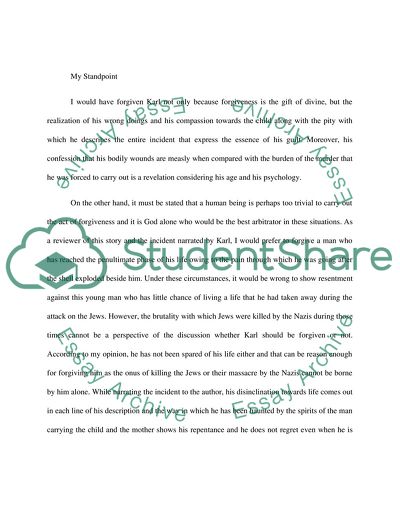Cite this document
(The Sunflower: On the Possibilities and Limits of Forgiveness Book Report/Review, n.d.)
The Sunflower: On the Possibilities and Limits of Forgiveness Book Report/Review. https://studentshare.org/literature/1809995-the-sunflower
The Sunflower: On the Possibilities and Limits of Forgiveness Book Report/Review. https://studentshare.org/literature/1809995-the-sunflower
(The Sunflower: On the Possibilities and Limits of Forgiveness Book Report/Review)
The Sunflower: On the Possibilities and Limits of Forgiveness Book Report/Review. https://studentshare.org/literature/1809995-the-sunflower.
The Sunflower: On the Possibilities and Limits of Forgiveness Book Report/Review. https://studentshare.org/literature/1809995-the-sunflower.
“The Sunflower: On the Possibilities and Limits of Forgiveness Book Report/Review”. https://studentshare.org/literature/1809995-the-sunflower.


